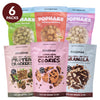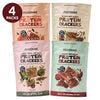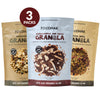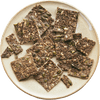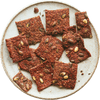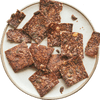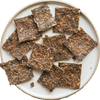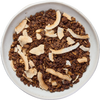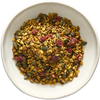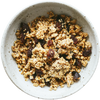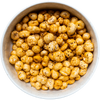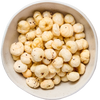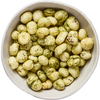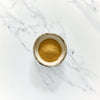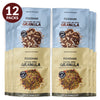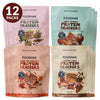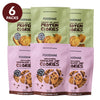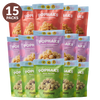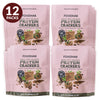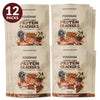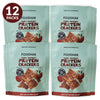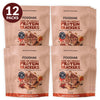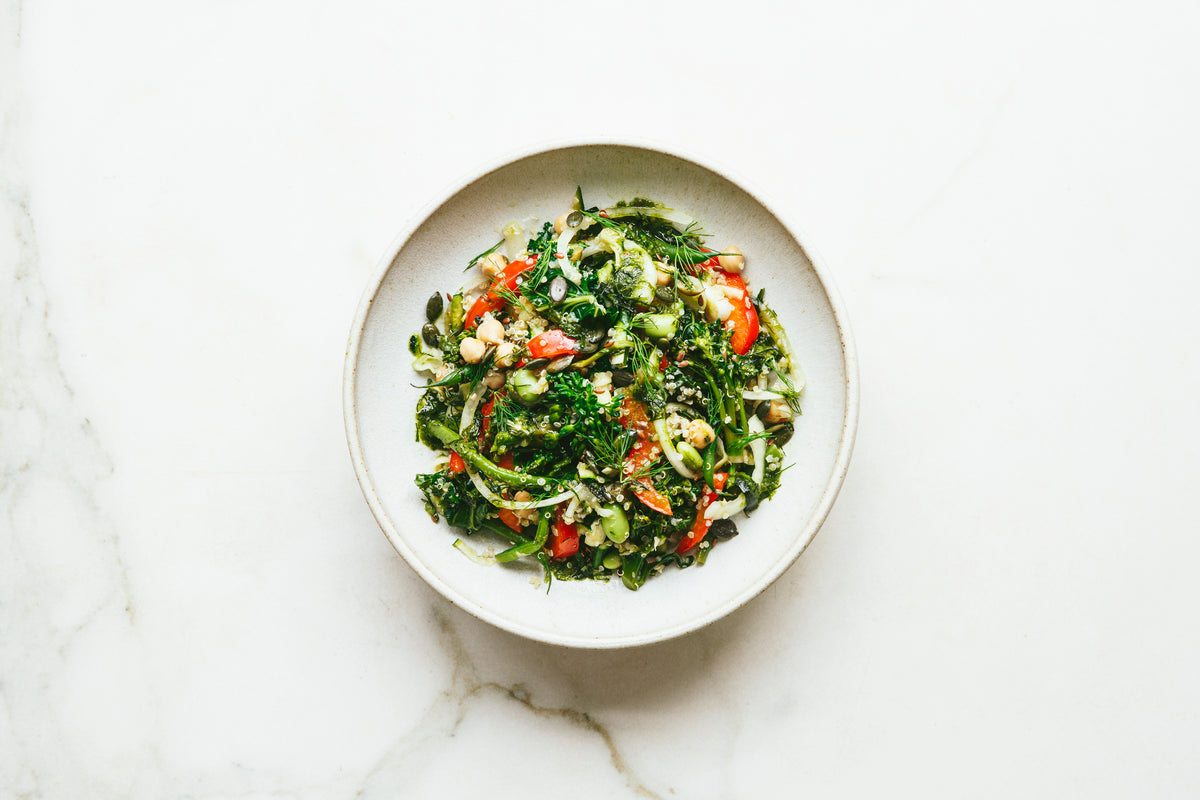
Why Does Your Body Need Collagen Foods?
Reviewed By : Michele Porter - Nutritionist
Collagen is a type of protein that is essential for maintaining healthy skin, joints, bones, muscles, and gut health. It promotes skin elasticity, supports cartilage, strengthens bones, aids muscle growth, assists wound healing, and improves digestive health. As collagen production declines with age, supplementing with collagen may help restore collagen levels and improve overall health.
In this article, let us explore about collagen in detail.
Collagen and its main benefits
Collagen is a protein and the main building block of our skin. It is mainly composed of proline, glycine, and hydroxyproline. Typically, collagen contains three strands of amino acids arranged in a triple-helix structure. The main benefits of collagen are:
- Keep the skin healthy.
- Supports joint health by cushioning
- Strengthen the bones
- Helps build muscle
- Improves gut health
Types of collagen
Collagen is an incredibly important protein found throughout the body. Thanks to modern gene cloning techniques, twenty-six different types of collagen have been discovered so far.
The five major types of collagen are:
- Type I collagen: The most common type of collagen found in many tissues throughout the body and makes up to 90% of the body's collagen. It plays a crucial role in the structure and support of these tissues.
- Type II collagen - This type of collagen is primarily found in cartilage and helps to provide elasticity and tensile strength. It also helps to bind the cartilage together.
- Type III collagen - This type of collagen is an extracellular matrix protein that is synthesised by cells. It supports hollow organs like the blood vessels, bowel, and uterus. It also plays a role in blood clotting and wound healing.
- Type IV collagen - This type of collagen is a major component of basement membranes. It acts as a network-forming collagen and helps to create a barrier between tissue compartments.
- Type V collagen - This type of collagen is a fibrillar collagen that helps to support the fibrillation of type I and type II collagen. It is found in various tissues, including the corneal stroma, bone matrix, and interstitial matrix of muscles, lungs, liver, and placenta.
Collagen is one of the body's most important structural and functional proteins, each with its distinct structure and function. From supporting tissues to helping with blood clotting and wound healing, collagen is an incredible protein.
What are the benefits of collagen?
Collagen is a type of protein that our body produces naturally. According to studies, your body stops or decreases collagen production as you get older. Therefore, you may start experiencing joint or knee pains, stiff tendons and ligaments, loose skin texture, hair loss, and weakened muscles. Hence, your body starts demanding collagen from other sources. Here, collagen supplements come into play.
- Improved Skin Elasticity: Collagen for skin is considered the best protein as it helps to improve the elasticity of the skin, which can reduce the appearance of fine lines and wrinkles.
- Increased Hydration: Collagen can help to improve the skin's moisture levels, which can make the skin appear plumper and more youthful.
- Helps to boost muscle mass: Collagen, the most abundant protein in the body, is an essential component of skeletal muscle. Studies show that collagen supplements can aid in boosting muscle mass in individuals suffering from sarcopenia, which is the loss of muscle mass that typically occurs with age. In a 12-week study, older men taking 15 grams of collagen during an exercise program gained significantly more muscle mass and strength than those who did not take collagen. Collagen supplements may encourage muscle protein synthesis and growth after exercise. However, collagen is not as effective as whey protein for building muscle or strength since it contains fewer branched-chain amino acids, which play a critical role in muscle building. Still, further research is ongoing to investigate the potential of collagen in enhancing muscle mass.
- Improved Skin Texture: Supplementing with collagen can help improve the skin's texture, making it appear smoother and more even.
- Helps to relieve joint pain: If you're at a greater risk of developing osteopenia and osteoporosis, following a collagen supplementation diet may help increase bone mineral density. Bone mineral density (BMD) measures the number of minerals, such as calcium, in a person's bones. It is used to assess the strength and density of bones and to determine the risk of osteoporosis, a condition in which bones become weak and fragile and are more likely to fracture.
Best Vegan Collagen Sources
The primary source of the best collagen protein is the skin, bones, and other connective tissues of animals. Therefore, many collagen supplements, ranging from drinking collagen to powdered collagen supplements, are mainly made from collagen derived from animal skin, bones, and other connective tissues.
Don't worry if you're a vegan; you still have plant-based options to choose from. The plant-based supplements are cruelty-free and act as collagen boosters by supporting collagen production in the body. Collagen is made in the body from vitamins and minerals, such as vitamin C and zinc, which are found in these vegan collagen boosters. Additionally, some products contain plant extracts and herbs known for stimulating collagen synthesis.
Rather than taking supplements to meet your amino acid requirements, you can meet them through your diet. Among the amino acids in collagen, glycine, lysine, and proline have the highest concentrations.
Here are a few food sources along with food items that contain all three of these amino acids:
- Soy products: Tempeh, tofu, and soy protein
Mapo Tofu, Red Thai curry, and Fried Rice with Tofu, Edamame and Sweetcorn are the best options if you are looking to maintain your skin healthy.
- Legumes: Black beans, lentils, and chickpeas
Harissa Chickpea Stew, and Apricot and Olive Tagine are not just mouthwatering but also loaded with legumes like chickpeas to protect your skin.
- Seeds: Especially pumpkin, squash, sunflower, and chia
Seeded Omega and Millet Crackers guarantee you bright and healthy skin as it is rich in seeds like pumpkin, and chia.
- Leafy greens: Spinach and kale
Spirulina Thai Green Curry, Creamy Mushroom and Spinach Risotto, and Kale & Spirulina Bhaji are loaded with leafy greens to promote healthy skin.
- Nuts: Pistachio, peanut, almonds, walnuts, and cashew
- Citrus fruits: Oranges, lemons, and other citrus fruits
For more such Collagen rich food items, check out Foodhak.
Conclusion:
Collagen is a crucial protein in the body that helps to maintain the structure and function of different tissues and organs. Supplementing with collagen can offer several benefits for the skin, such as improved elasticity, hydration, and texture. Collagen supplements aren't recommended for people under 20 as they may have few side effects.
Foodhak offers plant-based options to support collagen production for those following a vegan lifestyle. By incorporating collagen-boosting foods and supplements into your diet, you can help maintain healthy skin and joints and overall well-being.
Also read: Vegan Foods, Nutritious Meal, Vegan Protein
